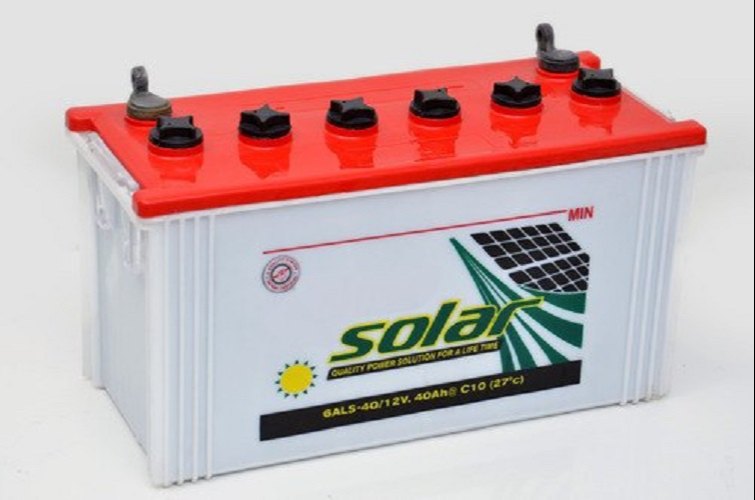When considering a solar battery for your home or business, price is a major factor in the decision-making process. Solar batteries allow you to store excess energy generated by your solar panels for later use, ensuring you have power even when the sun isn’t shining. But like all energy solutions, solar batteries come in various price ranges. Understanding the factors that influence solar battery prices can help you make an informed decision. In this article, we will explore the key factors that determine solar and battery price.
1. Battery Type
One of the most important factors affecting solar battery prices is the type of battery technology used. There are several different types of solar batteries, each with its own cost structure.
Lithium-Ion Batteries
Lithium-ion batteries are the most popular choice for solar energy storage. They are efficient, durable, and have a longer lifespan compared to other types of batteries. However, they also tend to be the most expensive option on the market. Despite their higher upfront cost, their long lifespan and low maintenance requirements make them a cost-effective choice in the long run.
Lead-Acid Batteries
Lead-acid batteries are a more affordable option compared to lithium-ion batteries. They have been used in solar energy systems for decades and are known for their reliability. However, they have a shorter lifespan and require more maintenance, which can add to the overall cost of ownership over time. Lead-acid batteries are a good option for those on a budget but may not offer the same performance and longevity as lithium-ion batteries.
Flow Batteries
Flow batteries are a newer technology that is starting to gain popularity in the solar energy market. While they offer advantages like long cycle life and deep discharge capabilities, they are still relatively expensive compared to lithium-ion and lead-acid options. Flow batteries are best suited for larger solar energy systems where energy storage requirements are higher.
2. Storage Capacity
Another important factor in determining the price of a solar battery is its storage capacity, typically measured in kilowatt-hours (kWh). The larger the capacity, the more energy the battery can store, and consequently, the higher the price.
Smaller Capacity Batteries
If you only need to store a small amount of energy to power essential appliances during the night or during outages, a smaller capacity battery may be sufficient. These batteries tend to be more affordable, and they work well in smaller homes or for users who don’t require extensive backup power.
Larger Capacity Batteries
For larger homes or businesses, or if you plan to use your battery for off-grid living, you’ll need a battery with a larger storage capacity. Larger batteries can store more energy, but they come with a higher price tag. The cost of a larger solar battery system can significantly increase, especially if you need to pair it with a large solar panel array.
3. Battery Brand and Manufacturer
Like with any product, brand reputation plays a role in the price of solar batteries. Well-established brands that are known for their reliability, quality, and customer service often charge a premium for their products.
Premium Brands
Premium brands like Tesla (Powerwall), LG Chem, and Sonnen have built a reputation for offering high-quality, durable, and high-performance batteries. These batteries are typically more expensive, but they come with the assurance of strong warranties, excellent performance, and cutting-edge technology.
Budget-Friendly Brands
There are also lesser-known or budget-friendly brands that offer more affordable solar batteries. While these options may not have the same level of brand recognition, they can still provide reliable performance for smaller systems. These batteries may have fewer features or shorter warranties, but they can still be a good choice for those on a tight budget.
4. Efficiency and Warranty
Efficiency refers to how much energy the battery can store and how much is usable after charging and discharging cycles. Batteries with higher efficiency ratings tend to cost more because they are able to deliver more usable energy from the same amount of storage capacity.
Efficiency
More efficient batteries allow homeowners to store more energy for later use, reducing reliance on the grid and potentially lowering energy bills. Higher efficiency generally means a higher price, but it also translates into better overall performance.
Warranty
Most solar battery manufacturers offer warranties to protect your investment. A longer warranty typically indicates higher quality and more reliability, but it also contributes to a higher price. Some manufacturers offer warranties that last for 10-15 years or more, which can significantly enhance the long-term value of your solar battery.
5. Installation Costs
While the cost of the battery itself is an important consideration, installation costs should not be overlooked. Solar battery installation requires a professional technician to integrate the battery into your existing solar system. The complexity of the installation can influence the overall cost.
Installation Complexity
For a simple setup with a smaller battery, installation may be straightforward and relatively inexpensive. However, if you need to install a larger battery system or if additional electrical work is required, the installation cost can increase significantly.
Incentives and Rebates
In many regions, government incentives or rebates are available to help offset installation costs. These incentives can reduce the overall price of the system, making solar batteries more affordable. Be sure to research available programs in your area to take advantage of these savings.
6. Location
Finally, location plays a role in the price of solar batteries. Different regions have different energy needs, market conditions, and regulations, all of which can affect pricing. For example, areas with high solar energy adoption and a competitive market may offer lower prices due to increased availability and competition.
In addition, shipping costs can vary depending on where you live. Batteries are heavy, and if you’re located in a remote area or far from a distribution center, shipping fees could increase the overall cost of your solar battery system.
Conclusion
Solar battery prices are influenced by a variety of factors, from the type and capacity of the battery to the brand and installation costs. While lithium-ion batteries tend to be more expensive, they offer better performance and longevity. The size of the battery you need and the brand you choose will also significantly impact the price. Finally, factors such as efficiency, warranty, installation costs, and location can all play a role in determining the overall price of your solar battery system.
Before purchasing a solar battery, it’s essential to assess your energy needs, budget, and long-term goals. By understanding the factors that contribute to solar battery prices, you can make an informed decision and choose the best option for your home or business.















